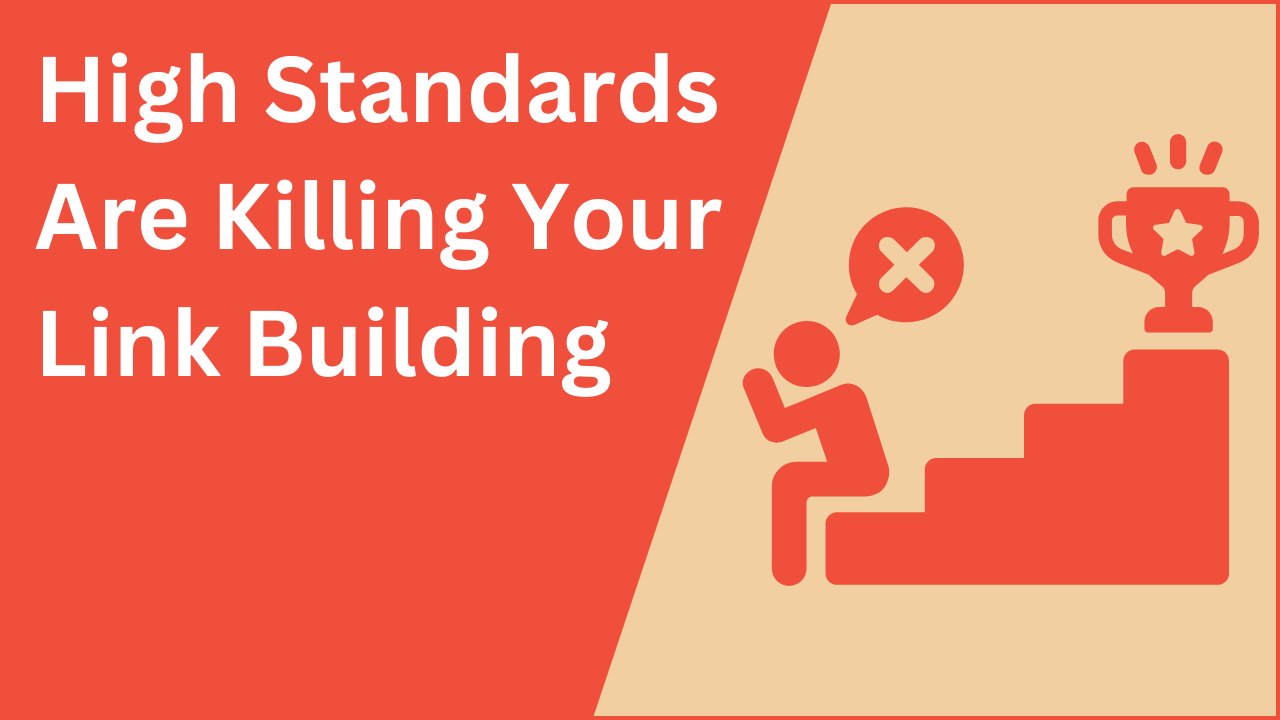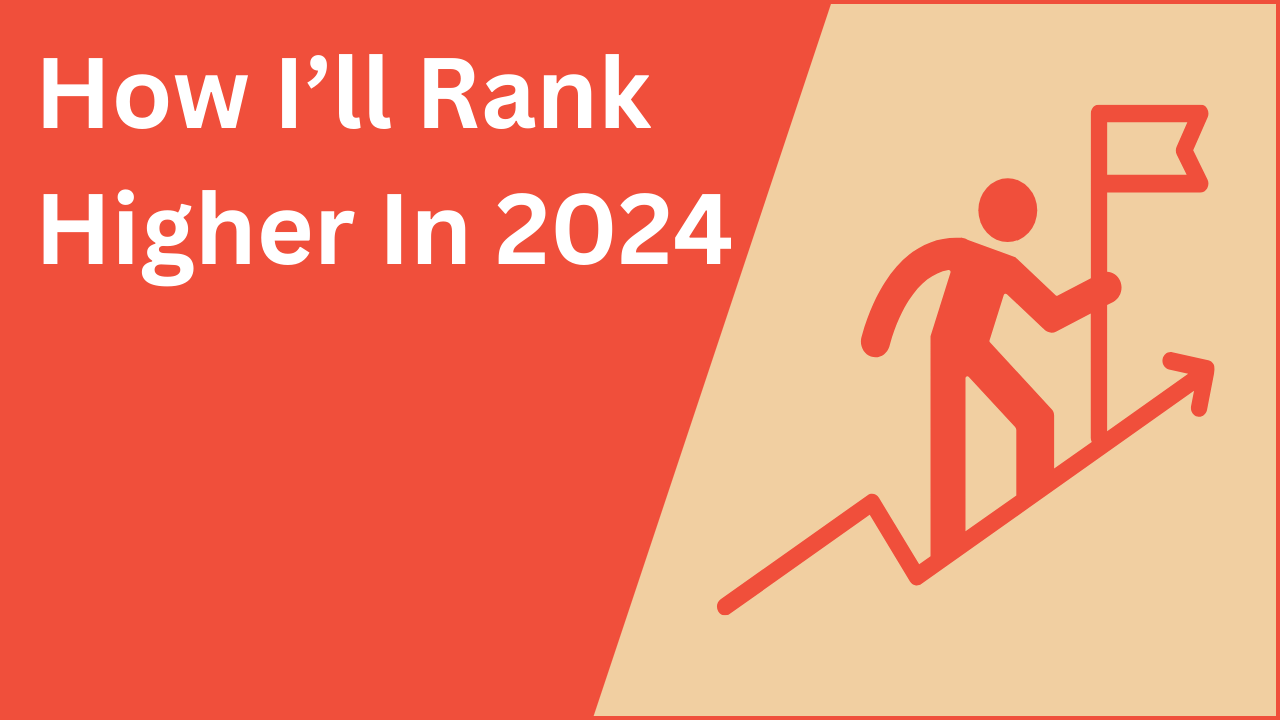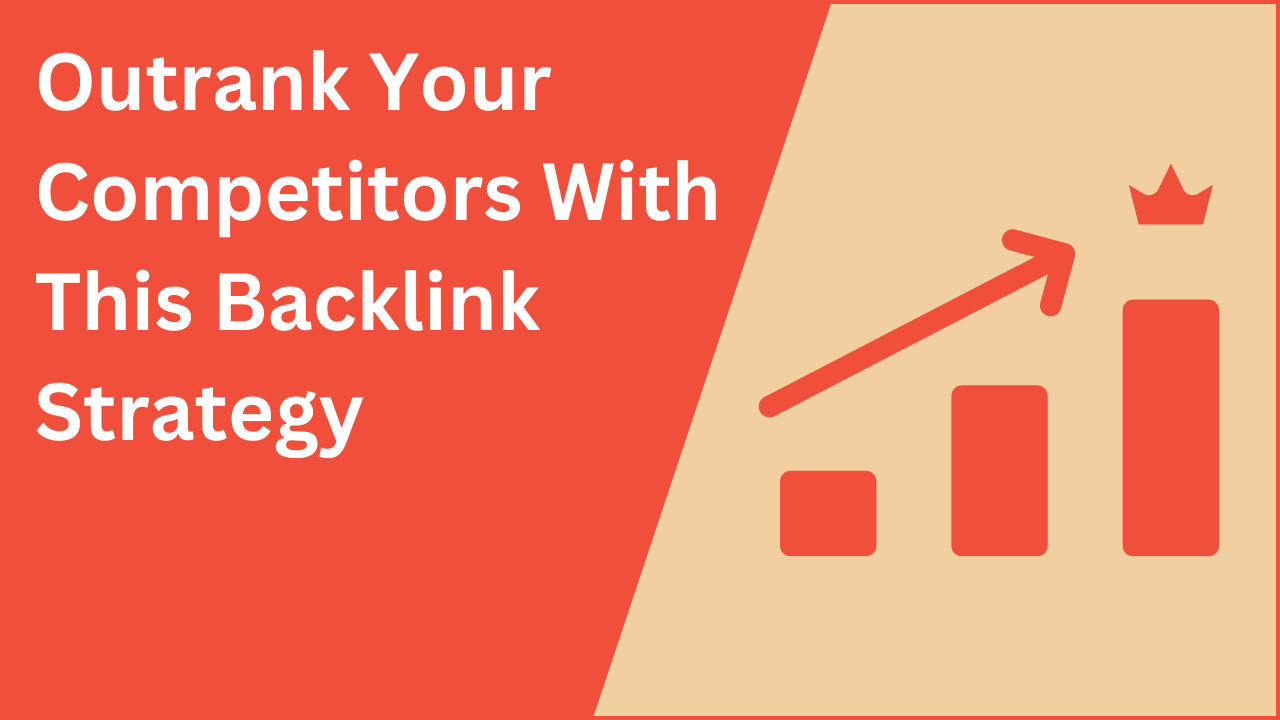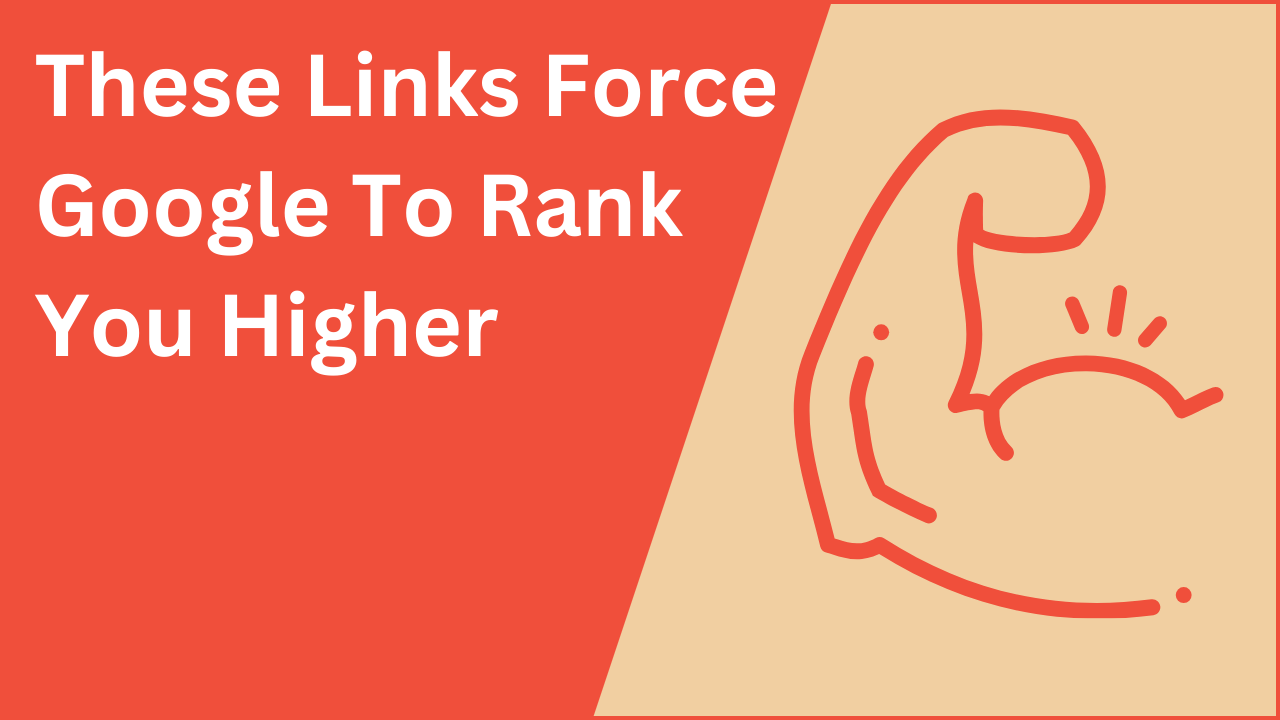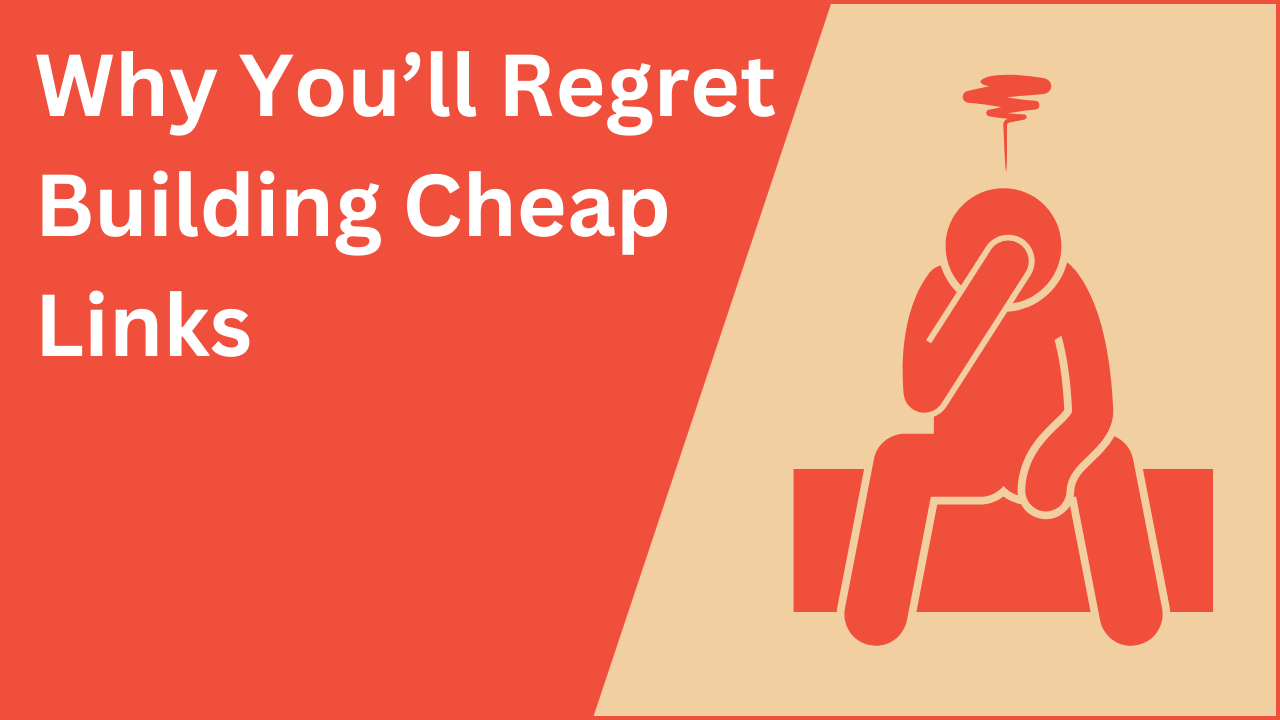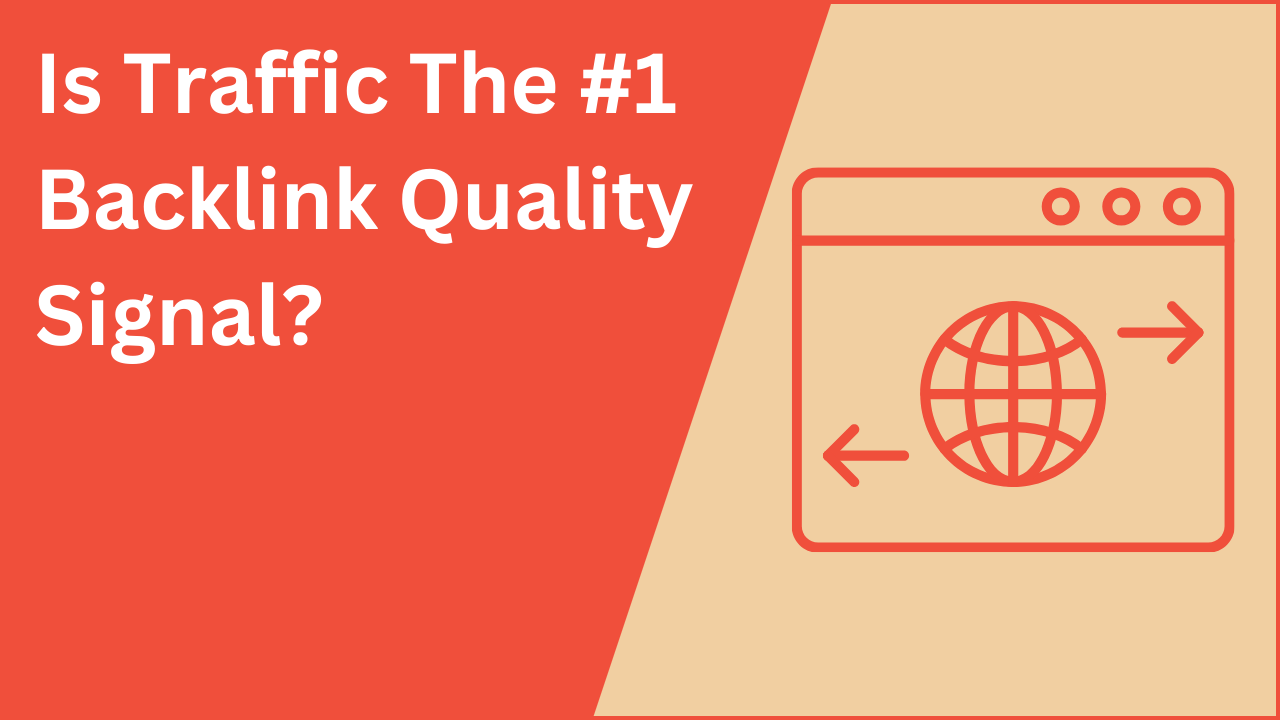Link building is a necessary part of your SEO strategy for ecommerce. If you’re using SEO as a way of getting traffic to your ecommerce store, link building should be a very pivotal piece of the puzzle.
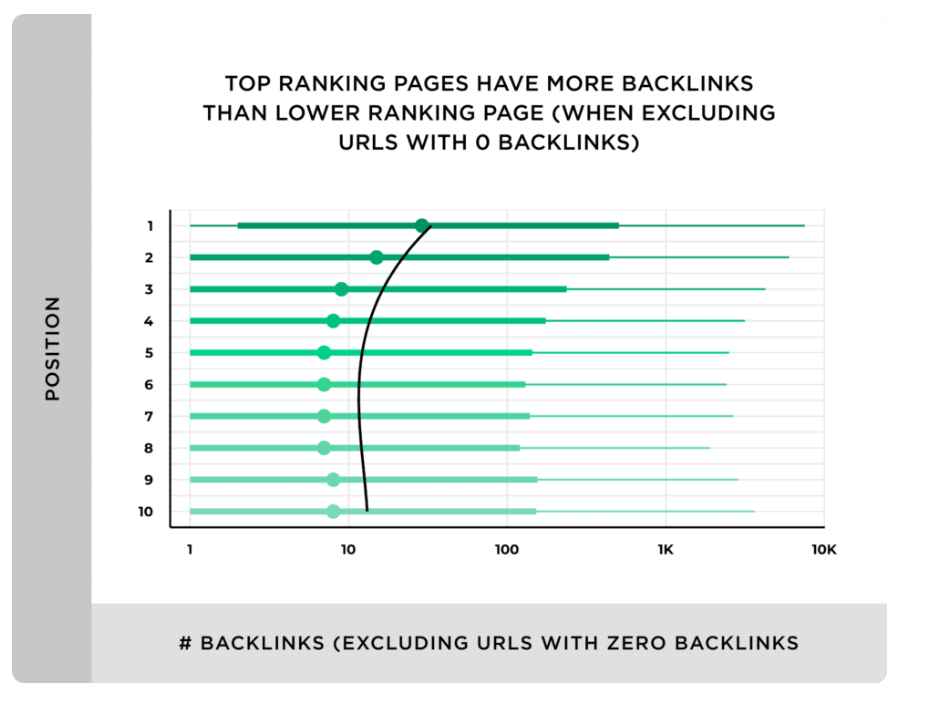
A study done by Backlinko shows that the top-ranking pages on Google have more backlinks than the lower-ranking pages. The more links you have, the higher the chance you have of ranking on page one for the keywords you want to rank for.
In this guide, we’re going to touch on the importance of ecommerce link building for your ecommerce sites and also break down some of the most popular link building tactics you can use to grow your ecommerce site, increase your authority, and rank higher for the keywords that help you generate revenue in the search engines.
Why Are Links Important for Ecommerce?
There are many benefits to link building, but the most obvious one is that it impacts your rankings. Think of a link as a vote of confidence for your website. The more votes you have, the higher you rank in the search engines.
As you add more links from trusted websites, Google will continue to look at you as a trusted source for the information, products, or services you provide.
Links are one of the most crucial ranking factors that Google uses to determine which sites rank well and which don’t.
Link building for ecommerce will also benefit you by driving more traffic to your website, which should ultimately equal more revenue.
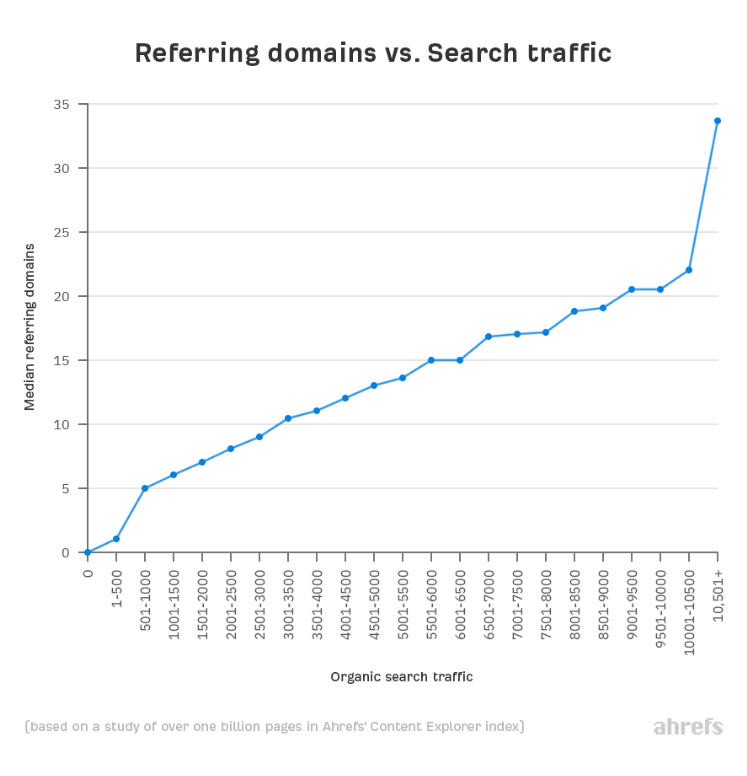
The image above from Ahrefs shows how the number of referring domains impacts the amount of organic search traffic that a site receives. The referring domain is the website that links to your website.
The chart shows us that sites with 0-5 referring domains average between 0-501 organic search visitors. As the referring domains increase, the organic traffic increases.
So, we can assume that sites with more referring domains (i.e links) receive more organic traffic because they rank higher.
Another great ecommerce link building benefit is that building backlinks helps you build more backlinks. As you increase the rankings and create more valuable content that people like, you increase your chances of getting other websites to link to you.
Other sites will see you as a resource and link to you to provide more information to their readers. Quality content gets quality links.
What Makes a Quality Backlink?
It’s important to understand that quality over quantity is essential in ecommerce link building.
There are three main factors to focus on to determine the quality of a backlink:
- Site authority
- Page power
- Relevance
The site you’re trying to get backlinks from should possess as much of these three things as possible to make the link worth going after.
Let’s break them down.
Site Authority
The authority of a backlink is determined by the site’s backlink profile.
Backlinks make a site more authoritative in the eyes of Google.
So, how do you figure out the site authority of a website at first glance?
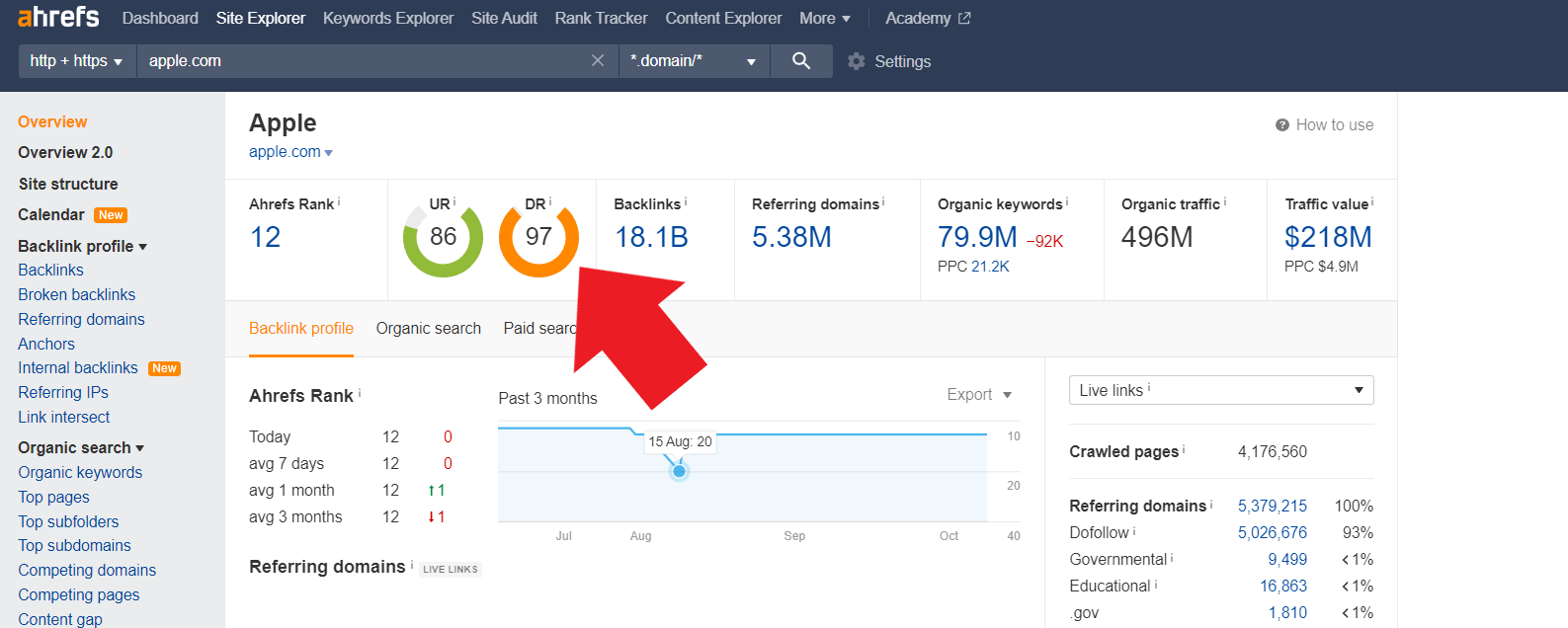
One way is to use domain rating from Ahrefs. Apple, for example, has a domain rating of 97 out of 100, which means it is a high authority website, and Google would likely see a link from here as very powerful for your website.
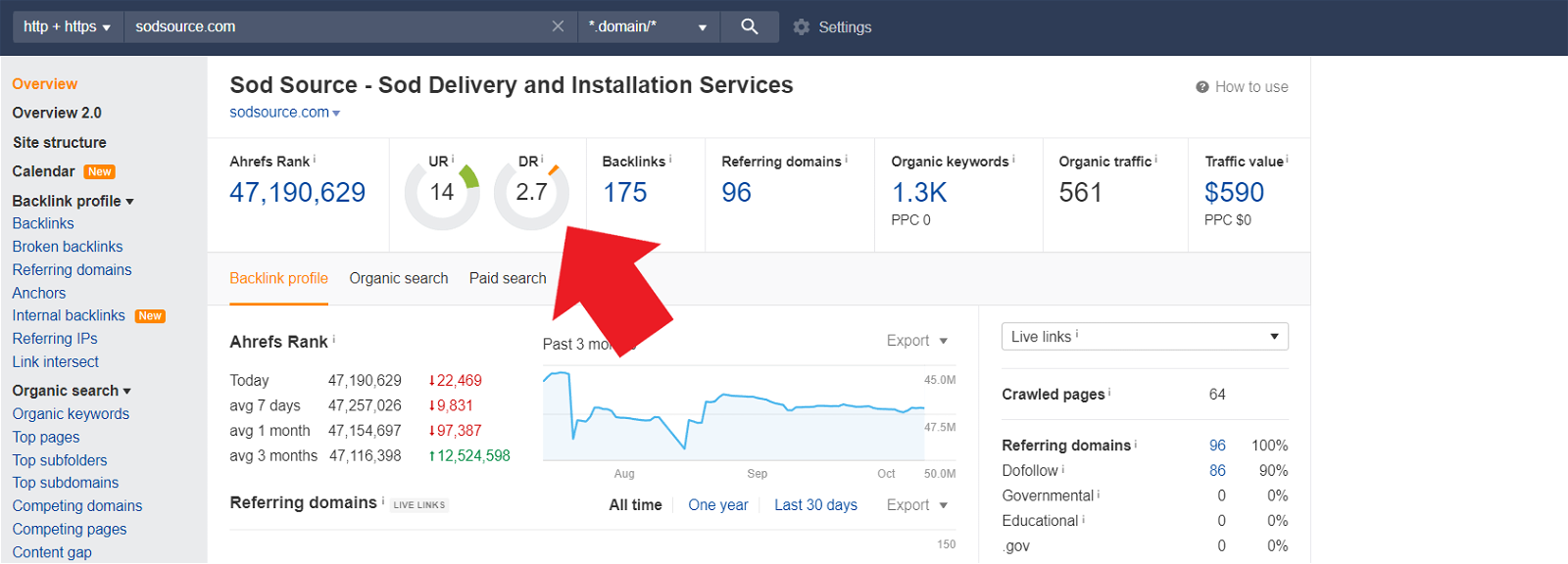
On the other side, sodsource.com has a domain rating of 2.7, so a link from this site wouldn’t likely impact your website as much.
It doesn’t mean that there is anything wrong with this website, it just simply means that the links don’t carry as much weight because they don’t have as much authority.
As an indication of what makes a site “high authority,” look at the backlinks in the Ahrefs screenshots above. Sod Source has 175 backlinks, while Apple has 18.1 billion. Of course, brand recognition is important in this example but link building plays a major role for both of these brands.
Page Power
The power of a page is measured in a few different ways. The total number of backlinks to a specific page is important to consider and the quality of the individual page is also crucial.
You’ll see this measured as URL rating (UR) or page authority (PA) depending on the SEO tool you’re using.
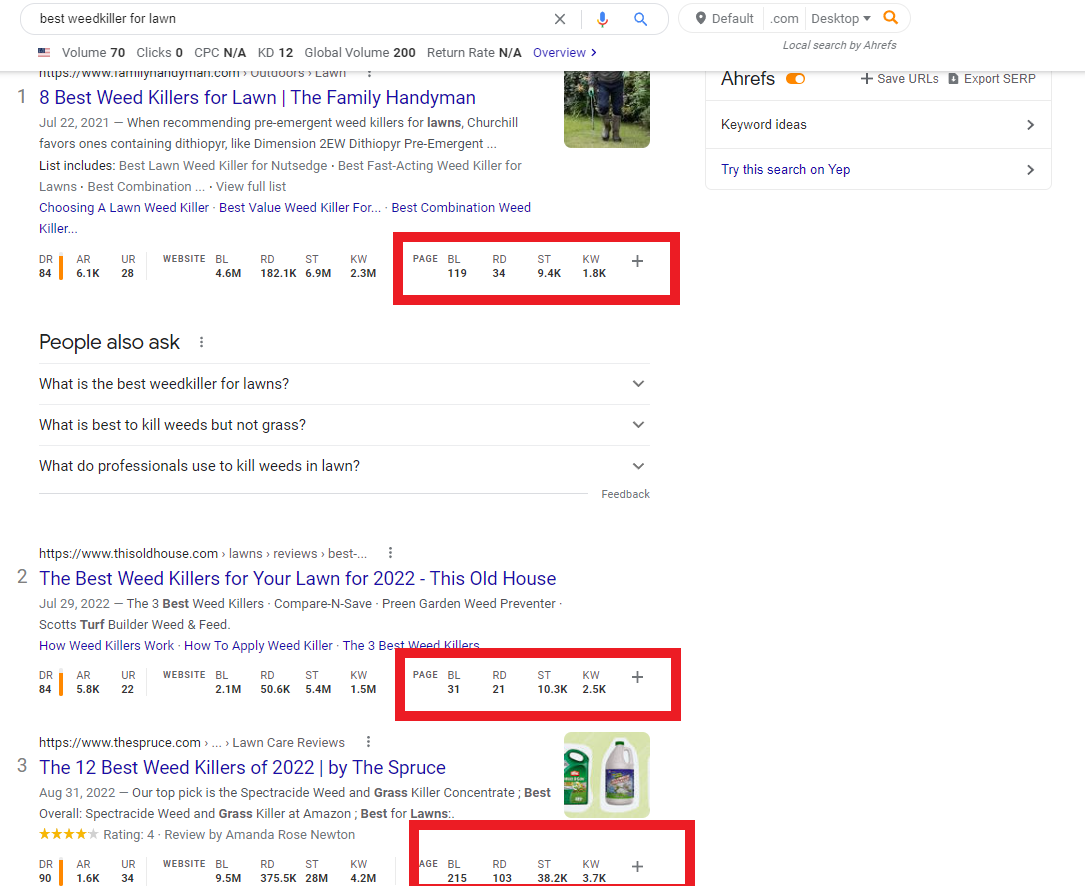
If we Google “best weed killer for lawn” and use the Ahrefs Chrome Extension you can see that the top ranking pages all have a pretty solid amount of backlinks.
Of course, we never know the exact reasons why Google ranks certain pages higher than others because the number 2 page doesn’t have as many backlinks as the number 3, yet it outranks it.
Perhaps the links the page has are higher authority or from better quality content.
Either way, the power of a specific page is simply another means of determining how valuable a link is.
If a page has a lot of backlinks, traffic, and good quality content, chances are a link from that page would be good for your ecommerce link building strategy.
Relevance
The relevance of a link is incredibly important because it tells Google what your website is about. If your ecommerce sites focus on selling gardening equipment, a link from a tennis website won’t carry as much weight as a link from another gardening website.
Google is always trying to connect the dots and provide the best experience for users – that’s Google’s main goal at the end of the day. If you can make the process as simple and straightforward for Google, chances are, you’ll be rewarded for it.
If Google is trying to figure out what keywords to rank you for and where to rank you and your link profile is all messy with links from all different kinds of websites, you’re going to confuse the algorithm.
That doesn’t mean that an irrelevant link is totally useless. Remember, the goal is to have as much of these three things as possible.
If a site has authority and power but doesn’t have relevance, it could still be a good link as long as it’s broad enough to make sense and doesn’t seem forced.
The best link building strategies revolve around creating relevant links that coincide with what you do and provide on your ecommerce site though.
Ecommerce Link Building Tactics: 10 Ways to Get More Links
We’ve determined that links are an essential piece of building an ecommerce website. The goal should be to get as many high authority backlinks as possible. Here are ten of the best link building tactics for ecommerce.
1. Blog Info Content
A great way to address ecommerce link building is by creating linkable assets. A great example of a linkable asset is a blog post.
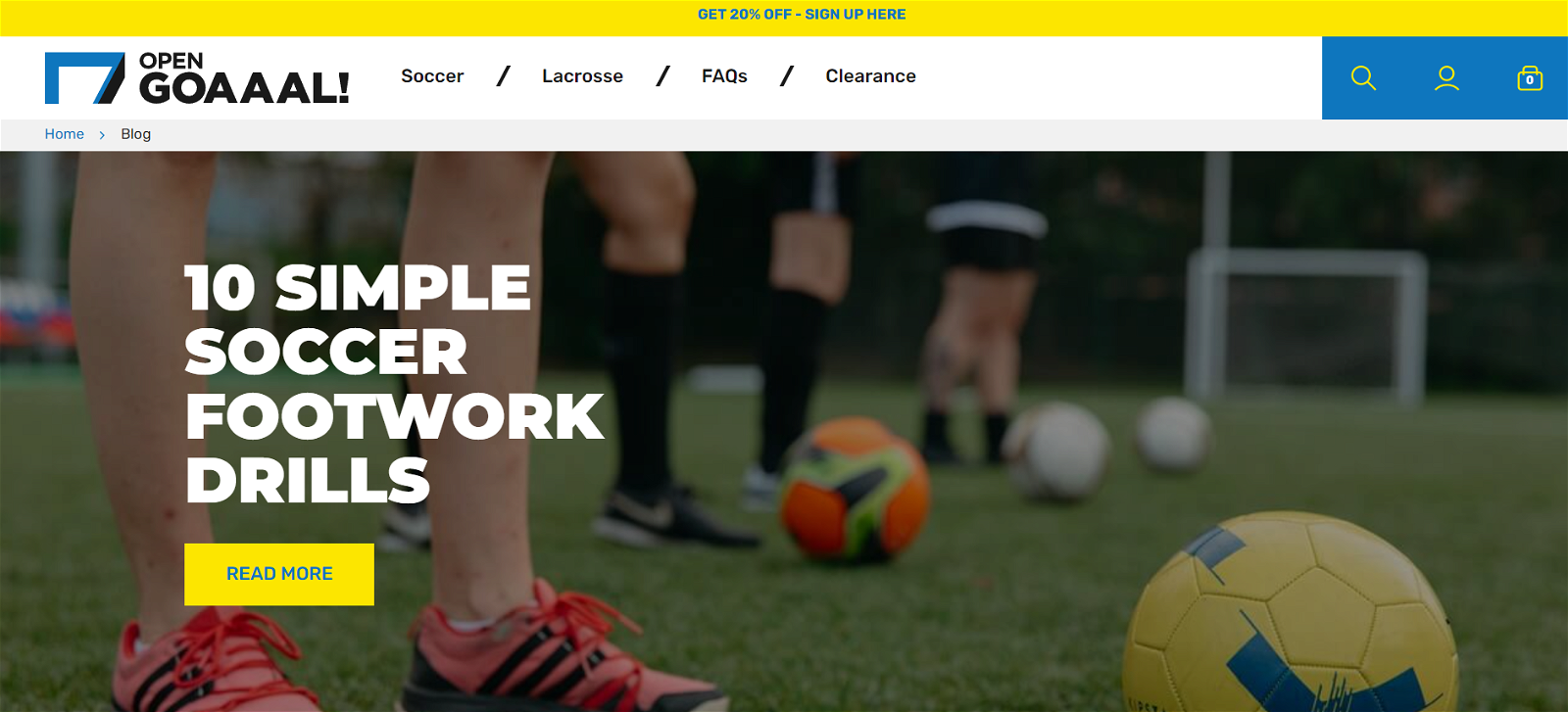
You create valuable content on your website that is relevant to your niche, then you reach out to website owners of other sites in the niche and offer your blog content as a resource and ask them if they would be willing to link to your article.
This benefits you in a number of ways.
First, it benefits you by adding a link that points to your website. If the sites you’re reaching out to have authority, power, and relevance, then chances are, enough of those links will be a positive vote of confidence for Google to increase your rankings.
It can also benefit you by funneling traffic through to your blog which could result in sales or brand awareness for your ecommerce website.
Certain types of content are more known for getting links than others. Creating content with a lot of data and media in it is one great way to get links. People will link to these types of articles automatically because they are used as a resource to enhance their articles.
2. Influencer Product Reviews
Sponsored product reviews are another popular way of converting blog content into something that another website would like to link to.
Reach out to influencers in your industry and see if they’d be willing to review your product. You receive the link and they receive the product for free. Many small, up and coming influencers would be happy to do this.
For example, if you run a gardening ecommerce site, you could send a weed wacker and have them review it, take pictures, and talk about how it performs.
To earn a dofollow link for this, it’s important that the influencer does not mention that it’s a sponsored review.
If you’re reaching out to larger and bigger name influencers in the space, they may expect to pay for the review but you can handle this on a case to case basis to ensure that it’s worth the fee.
Make sure the review feels natural and doesn’t appear that you encouraged them to do the review in exchange for a product because that’s against Google’s terms.
3. Create a Glossary or FAQ Page
This link building strategy is very similar to creating a blog but with a different focus. You want to prioritize publishing industry-related terms based on search volume.
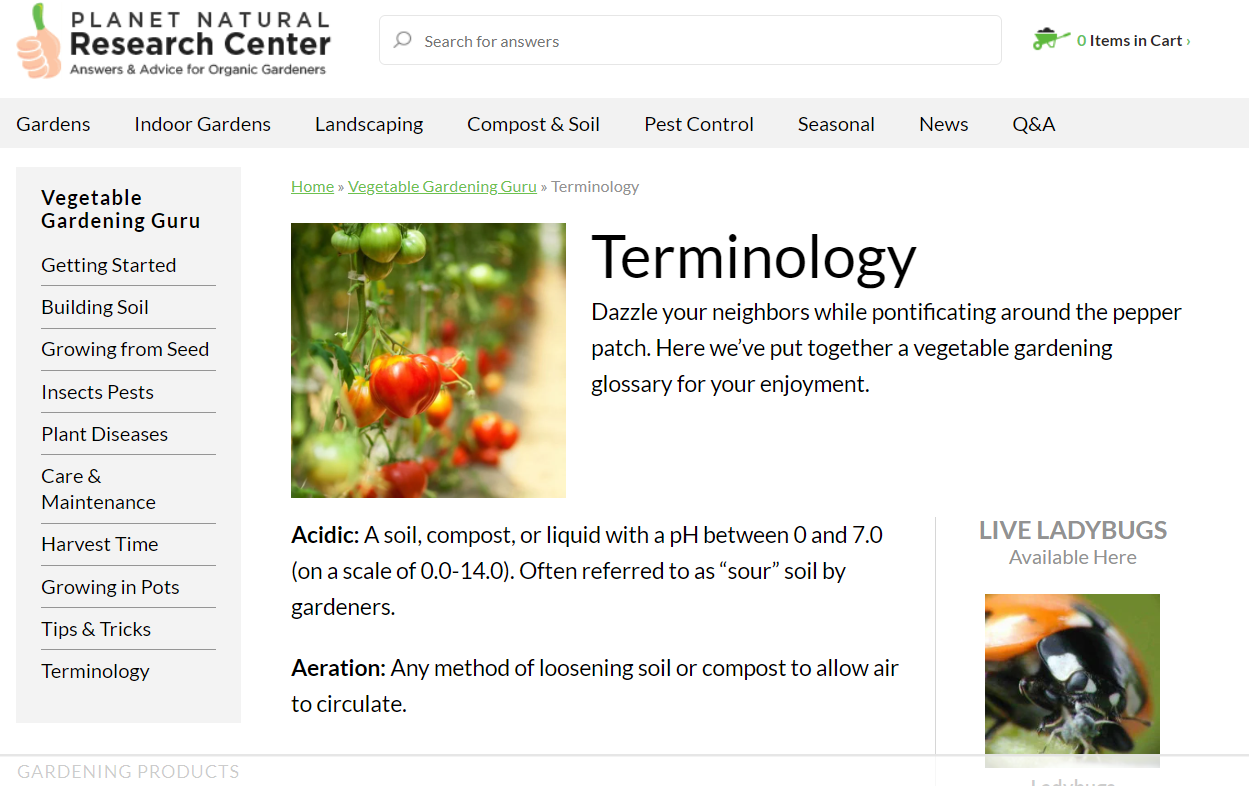
A great example of this is on planetnatural.com. This page contains a ton of terminology focused on gardening and plants. Not only is this great as a resource but it also likely drives traffic to the website because there are a lot of terms on this page.
The way you get links to a page like this also involves outreach. You can reach out to other gardening websites and offer this page as a resource they can include on their website. In fact, you could even allow them to take some of the terms as long as they’re willing to include the link.
This will save them a ton of time and act as a valuable resource for their audience.
It’s important to understand that providing value is the basic foundation of ecommerce link building. If you want to get links, you need to provide value to people and this is a great way of doing so.
4. Reach out to Partners
What better place to start with ecommerce link building than the people you already know? One of the easiest ways to get links is to reach out to partners, colleagues, friends, and family that you already know and ask them if they’d be willing to give you a link.
Think about suppliers that have their products on your website. Are they linking to you as a place where their products are sold? If not, send them an email and see if they’d be willing to do that. If their site has a relatively high DR, that could be a great link opportunity.
You could also become a sponsor of something and get a link on their website as a result. If the cost is worth the link, consider sponsoring something relevant to your niche. If it’s a gardening website, consider sponsoring a club, a non-profit, or a gardening program.
Chances are they’ll include a link to your website on their sponsors page and that will result in positive link juice from Google as well as great brand exposure.
5. Infographics
Infographics are another example of a linkable asset. Infographics take complex subjects with a lot of data and break it down into an easy to understand image or set of images that can be reproduced and used to define the topic.
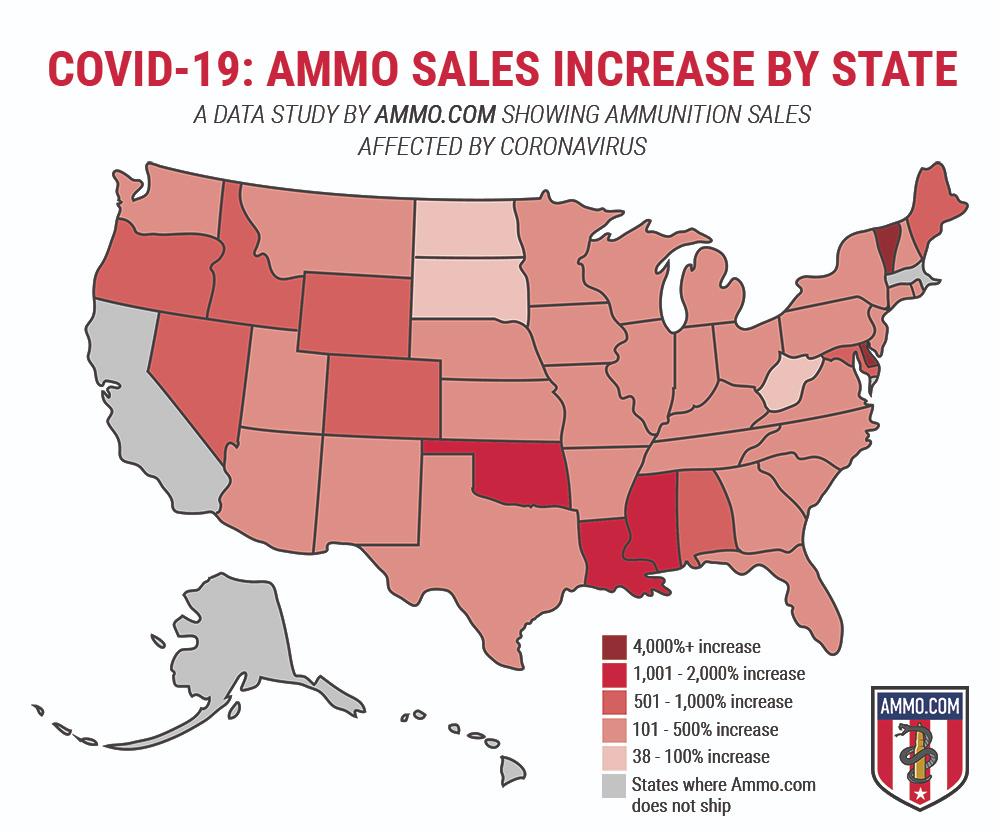
This infographic provides data regarding ammunition sales during the Coronavirus pandemic. It’s a guns and ammunition ecommerce store and it provides relevant data on the subject.
They’ve created this image as a way of visualizing the data and in the hopes that other people will use this data and link back to the article. Plus, the name of the website is right on the image as well.
Creating this infographic likely took a lot of time and research. Again, value = value. You provide the value by breaking down a complicated subject in an attractive and easy to absorb graphic, the recipient provides you with the link as a way of saying thank you for doing the hard work for me.
6. Unlinked Mentions
Sometimes companies might mention your ecommerce brand without linking to you. This isn’t always done “maliciously” or with bad intentions, maybe they forgot? These are called unlinked mentions.
If you can find unlinked mentions, you can take advantage of the opportunity and ask them to link to you. More often than not, they’ll be happy to do so and glad that you alerted them of it.
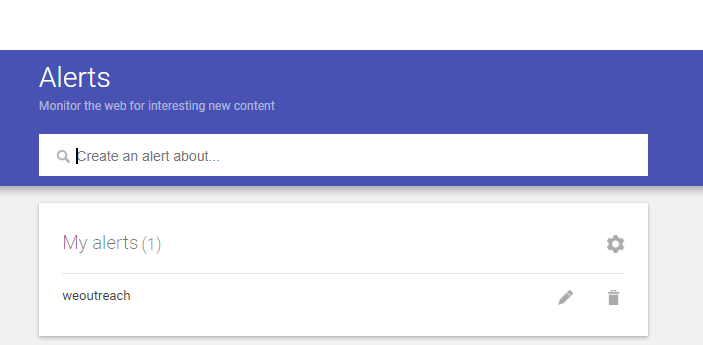
One way to make finding unlinked brand mentions easier is by using Google Alerts. You’ll put your brand name into the alerts section and everytime that brand is mentioned on the internet, you’ll receive an email to the email account linked to this Google account.
Keep in mind that if you started your ecommerce store yesterday, this isn’t likely to work that well because your brand isn’t popular enough to find unlinked mentions.
But, if you have a little brand authority you can use brand mentions to build links quickly for your ecommerce brands. This can be a great way to find low-hanging fruit link building opportunities.
7. Broken Link Building
This ecommerce link building strategy involves finding websites that link to resources that are no longer available.
They may have linked to something at one point as a resource but the page is no longer active and the link goes to a broken page.
You can use this opportunity to sweep in, send them an email, alert them that they have a broken link, and offer your resource instead. In most cases, people are happy that you took the time to tell them this and appreciate that you’re providing an alternative because it creates less work for them.
For broken link building to work, you need to find broken links.
The simplest way to do this is with Ahrefs.
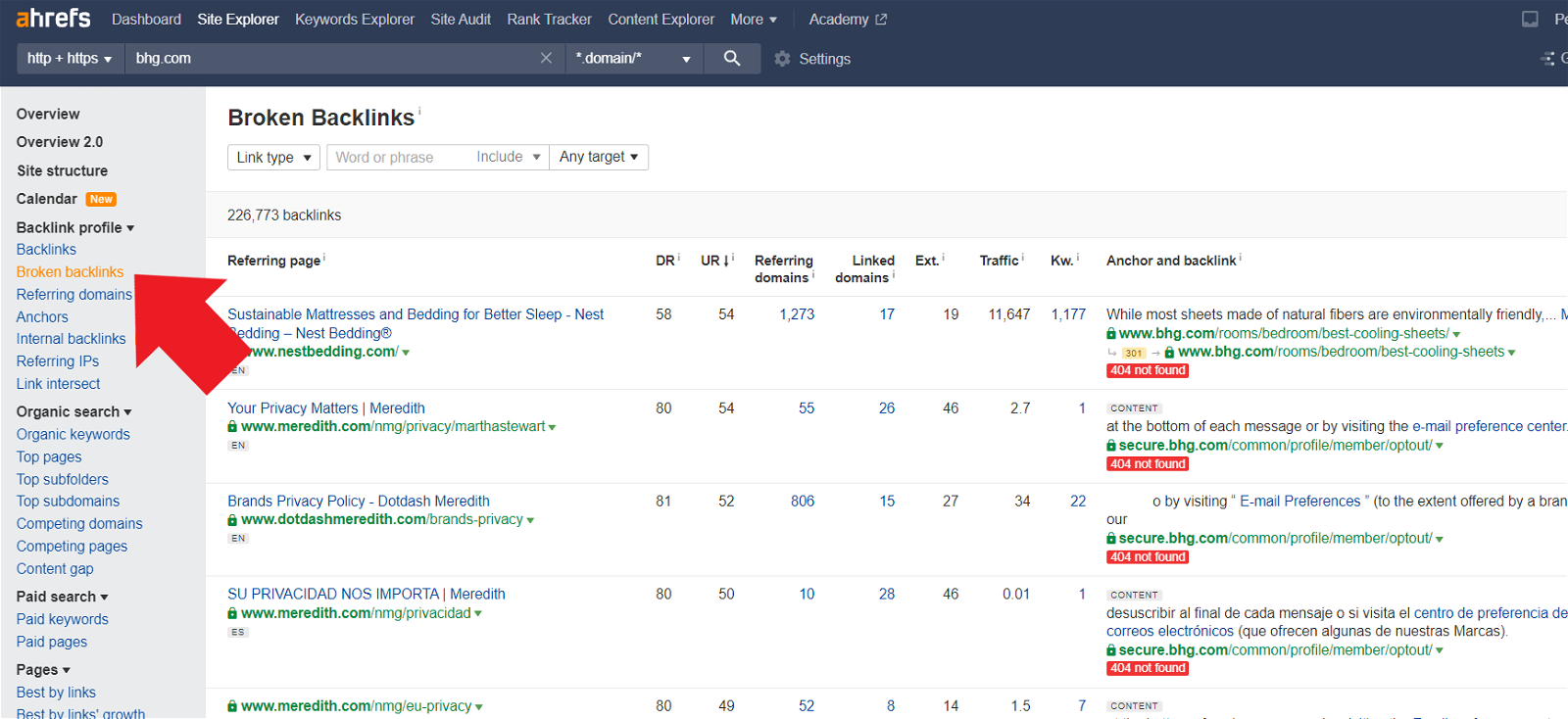
Using the broken backlinks section of Ahrefs, you can put in the domain that you would like to get a link on and see the broken pages they’re linking to.
If you already have a resource that could replace it, that’s great. If you don’t, you could potentially use that as an idea of a resource to create and then use it in your pitch when you email them.
8. Guest Posting
Guest posting is a great way to build backlinks because the relationship is crystal clear. You reach out to someone because you want to write an article on their website for free, they give you a link – it’s simple.
The reason guest posts work so well is because you’re offering to contribute something to their website and you’re already knowledgeable and trusted in that space (hopefully).
That’s the point, you want to reach out to websites in your niche and pitch the fact that you are also in that space and have the knowledge and expertise to contribute a valuable guest post that their readers will love. This is a great way to build links back to your website.
Share examples of the content you have on your site already and allow them the flexibility to offer ideas as to what topics they’d like you to write about.
Keep in mind that the guest posts you write for ecommerce websites are done with the purpose of building links and improving your backlink profile. But, you also want to help lift up other ecommerce brands and provide value to them as well.
This is why it’s important to have an established website already when you start reaching out for any type of ecommerce link building. If they check your site and there’s no content, you’re selling one product, and the site doesn’t work well; do you think they’ll want to give you a link even if you write an awesome article for them?
No, because it won’t look good on their link profile.
You need to make sure your website looks just as good as the ones you’re reaching out to. Get some content on your blog, pitch websites in your niche, and be sure to have plenty of examples to share.
9. Help a Reporter Out (HARO)
HARO is a platform that connects journalists with sources. You’re a source and a journalist needs information from you for an article they’re writing. You give them the information, they give you the link, and everyone is happy.
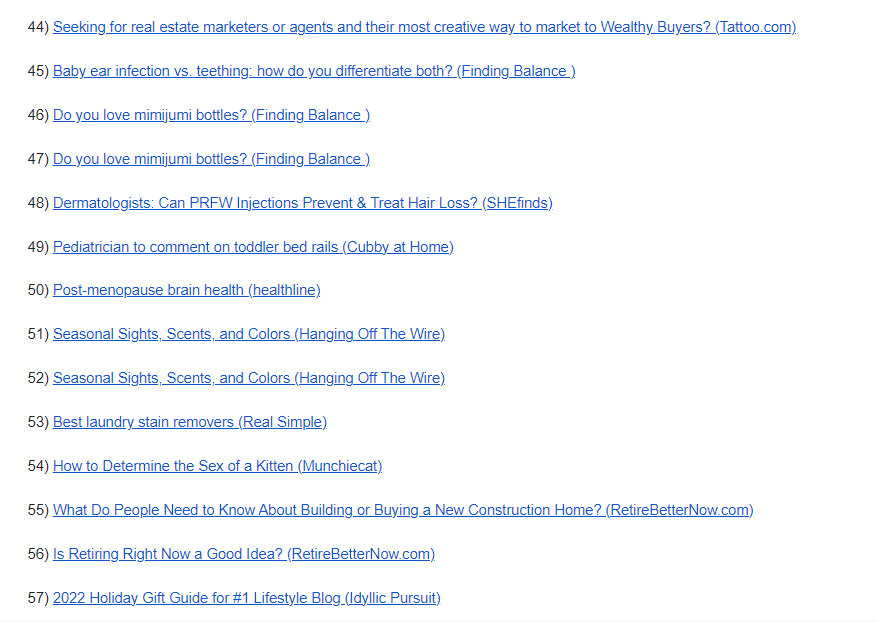
This is an example of some of the articles being written and the information journalists need. If what you sell on your ecommerce website is remotely relevant to any of these topics, you could be considered an expert source.
Help a Reporter Out is free to sign up for and all you need to do is respond to these pitches in a timely fashion with the best information and they’ll link to your website in exchange for your time.
This is a great way to do link building for ecommerce without having to know too much about SEO tools like Ahrefs or SEMRush. Keep in mind that it can take a lot of time and you’re not guaranteed to ever get a link from any of the pitches you respond to.
When done correctly, this can be a great tool for ecommerce websites trying to develop a link building campaign. Remember, having options when it comes to building links is always a smart choice.
10. Niche Edits
A niche edit is a link insertion made on someone else’s website. The website owner has an existing piece of content and you reach out to them with a resource that you think would be valuable in their blog post.
They then respond back to you and agree to give you the link in exchange for the valuable content.
Of course, it doesn’t always work that way but this is a simple way to build quality links and boost domain authority with the least amount of effort.
Keep in mind that this will often result in them asking you to pay for the placement. This isn’t “white hat” according to Google’s terms, but, no link building is exactly white hat anyway.
If you do end up having to pay, I recommend trying to get a link to product pages that actually generates revenue or drives revenue-related traffic to your site.
I’m talking about the difference between:
- How to use a weed wacker
- Best weed wackers of the year
One of these articles makes your site money while the other offers valuable information. There’s a time and a place for each but if you’re paying for a link, see if they’d be willing to allow you to put the product pages in the niche edit.
Focusing on building links to product pages helps your site make more money so make sure to use product pages to acquire links whenever possible.
Final Thoughts
Ecommerce link building is necessary if you plan to use SEO as a means of driving traffic to your store. If you want to rank higher in the search engines, implementing some of the link building tactics in this guide is not optional.
I recommend figuring out how you can provide the most value to the websites you’re reaching out to and start there.
At We Outreach, we understand the importance of effective ecommerce link building and we’ve helped dozens of ecommerce sites grow their traffic and revenue using link building strategy. If you’re struggling to build links or figure out where to start, contact us today!

